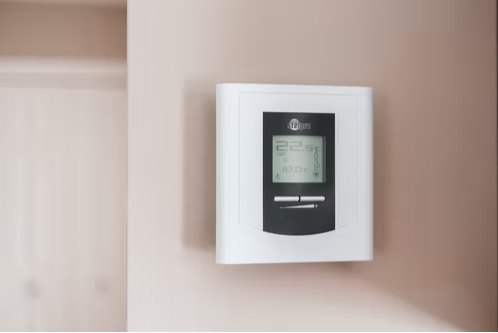Your home’s heating system is an essential part of your daily life. It keeps you warm in the winter and helps to keep your energy bills down. But like most things, there are a few things you should know about your heating system to get the most out of it. This article will discuss six crucial things you need to know about your heating system.
1. How It Works
The first and most important thing about your heating system is how it works. This includes understanding the different components of the system and how they work together to heat your home. By understanding how your heating system works, you can ensure it is operating efficiently and troubleshoot any problems. If you’re not sure how your heating system works, start by reading the manual or contacting the manufacturer. You can also find plenty of resources online that explain how a heating system works. For example, if you’re having trouble with your furnace, you can research how to troubleshoot furnace problems. It will help you determine whether the problem is with the furnace itself or another heating system component.
2. When to Schedule Maintenance
Regular maintenance can help keep your system running smoothly and prevent problems. This includes regularly changing the furnace filter and having the furnace serviced by a professional every year. However, if you live in an area with extreme temperatures, you may need to have your system serviced more frequently. The change furnace filter is often neglected, leading to a build-up of dirt and dust that can eventually damage the furnace. You should also be aware of the signs that your furnace needs repair. These signs include strange noises coming from the furnace, inconsistent temperatures in your home, and high energy bills. If you notice any of these signs, it’s essential to contact a professional for help.
3. The Size of Your System Matters
The size of your heating system is vital for two reasons. First, it needs to be large enough to heat your home. If it’s too small, it will have to work harder to maintain a comfortable temperature in your home, leading to higher energy bills. Second, the size of your system will determine how much fuel you need to use. A larger system will require more fuel, so choosing an appropriate size for your home and your budget is crucial.
4. Be Aware of the Different Types of Fuel
Several different types of fuel can be used to heat your home. The most common fuel type is natural gas, but there are also other options, such as propane, oil, and electricity. Each type of fuel has its advantages and disadvantages. So do your research to see which type of fuel is best for your home and your budget. When choosing a type of fuel for your heating system, you need to consider the cost, availability, and ease of use. You also need to think about what type of system you have and how to use it.
5. The Age of Your System
If your system is more than 20 years old, it’s probably time to upgrade. Older systems are less efficient and can be expensive to operate. They may also need repairs more often. So if you have an older system, it’s a good idea to start looking into a new one. Many new energy-efficient systems on the market can save you money in the long run. So don’t wait until your system breaks down to start shopping for a new one.
6. Know Your Thermostat Settings
Your thermostat is one of the most important components of your heating system. It controls the temperature in your home by scheduling when your furnace turns on and off. Many newer thermostats are programmable, so you can set them to turn on and off at specific times. It will help you save money on your energy bill by only heating your home when you need it. You should also ensure your thermostat is set to the correct temperature. If it’s set too low, your furnace will have to work harder to heat your home, leading to higher energy bills. If it’s set too high, you may not be comfortable in your home.
Heating your home can be a complex process. But it doesn’t have to be. You can find the right system for your home and your budget with some research. You can also save money by taking steps to improve the efficiency of your system. So please don’t wait until it’s cold to start thinking about your heating system. Start planning now to be prepared when the temperature begins to drop.
























